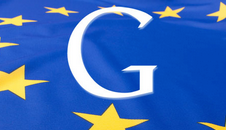Google Says European Law Does Not Support Mosley Lawsuit To Censor Search Results
Yesterday, Google posted a plea on their Google Europe blog asking European courts to dismiss a lawsuit filed by former Formula One president Max Mosley. The lawsuit requests that Google build a filter to identify and block what Mosley claims is unlawful content. A report on Bloomberg.com claims Mosley’s lawyers filed a suit in a […]
 Yesterday, Google posted a plea on their Google Europe blog asking European courts to dismiss a lawsuit filed by former Formula One president Max Mosley. The lawsuit requests that Google build a filter to identify and block what Mosley claims is unlawful content.
Yesterday, Google posted a plea on their Google Europe blog asking European courts to dismiss a lawsuit filed by former Formula One president Max Mosley. The lawsuit requests that Google build a filter to identify and block what Mosley claims is unlawful content.
A report on Bloomberg.com claims Mosley’s lawyers filed a suit in a French Court, asking Google to create filters that could identify and remove content referencing “Nazi-themed” sex parties in association with Mosley. A lawsuit has also been filed in Hamburg, Germany.
In response to the lawsuit, Google’s associate general counsel authored a blog post saying, “True responsibility for unlawful content lies with the people who produce it,” and asked the French and German courts to reject Mosley’s lawsuit.
According to Keller:
We sympathize with Mr. Mosley, and with anyone who believes their rights have been violated. We offer well-established tools to help people remove specific pages from our search results when those pages have clearly been determined to violate the law. In fact, we have removed hundreds of pages for Mr. Mosley, and stand ready to remove others he identifies.
Google claims that the E-Commerce Directive already has rules in place that were constructed specifically to handle such content concerns without limiting the freedom of expression online. Google says that a ruling in Mosley’s favor would create an “unprecedented new Internet censorship tool,” and impose, “an alarming new model of automated censorship.”
Google points out that any censorship tool created to identify and block unlawful content from search results would not solve the problem. Not only would the content still be available to access by other means, including following links posted on other sites or directly typing the content’s URL address into a browser, but the filter may block lawful content. “A set of words or images may break the law in one context,” writes Keller, “but be lawful in another.”
The Bloomberg.com article claims Mosley won 60,000 pounds for a similar lawsuit filed in a UK court in 2008 against the former News Corp. that published a related story, and, again, won a ruling in France in 2011, forcing News Corp. to pay Mosley another 32,000 euros in fines.
A lawyer connected to Mosley’s case told Bloomberg.com, “The case is very important, not only for Mr. Mosley, also generally for the protection of people’s dignity and privacy on the Internet.”
“This is not just a case about Google, but the entire Internet industry,” writes Google’s associate counsel, “If Mr. Mosley’s proposal prevails, any start-up could face the same daunting and expensive obligation to build new censorship tools.”
Contributing authors are invited to create content for Search Engine Land and are chosen for their expertise and contribution to the search community. Our contributors work under the oversight of the editorial staff and contributions are checked for quality and relevance to our readers. The opinions they express are their own.
Related stories
New on Search Engine Land